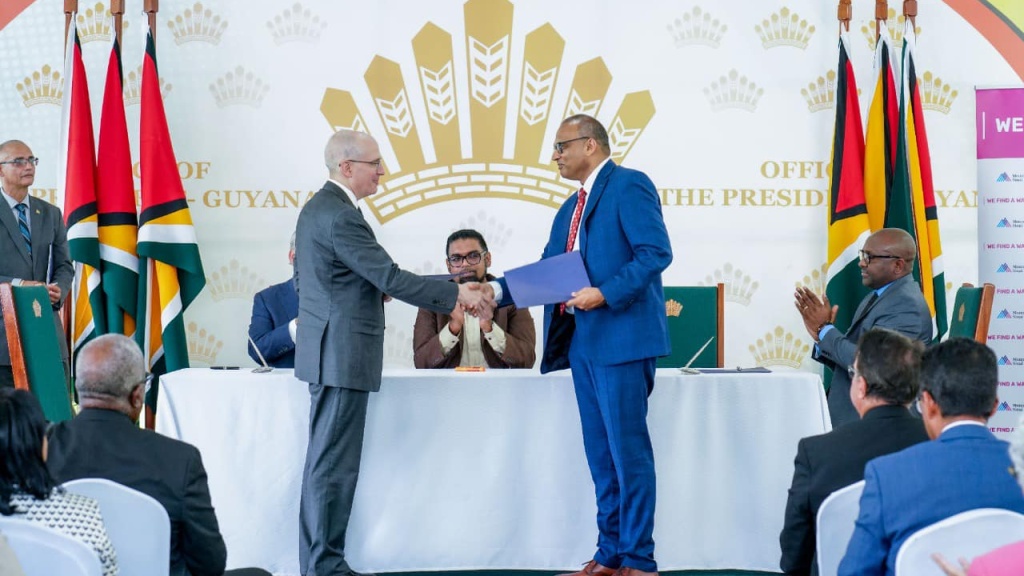
The Government of Guyana has signed an agreement with Mount Sinai Health System and Hess Corporation to improve the quality and access to healthcare in the country.
The new national healthcare initiative is funded jointly by Hess Corporation and the Government of Guyana.
“I am pleased that we are advancing on another branch of our transformative agenda. The Government’s commitment to providing world-class healthcare is one step closer with this
partnership. Building this health infrastructure requires a holistic approach aimed at a human, systemic, institutional, infrastructural, technological, and cultural shift in achieving the goal of world-class healthcare. I, therefore, welcome the investment and the commitment of Hess Corporation and Mount Sinai, and their collaboration with our Government and the National
healthcare system, which includes private healthcare in the achievement of our set goal,” President Dr Mohammed Irfaan Ali said at the program’s launch.
John Hess, CEO of Hess Corporation, said: “Access to affordable and high-quality healthcare is central to the country’s vision for long-term, shared prosperity for the people of Guyana. We are proud to be part of the strategic partnership with the Government of Guyana and the Mount Sinai Health System to bring a brighter and healthier future for every Guyanese citizen now and for generations to
come.”
Dr Jeremy Boal, Chief Clinical Officer of the Mount Sinai Health System, stated: “We are honoured to work closely with the country of Guyana and Hess Corporation to advance healthcare services for the people of Guyana.”
“Our team of experts in oncology, cardiovascular medicine, endocrinology, primary and preventative care, and operations will help develop high-quality services for the Guyanese people in partnership with Dr Irfaan Ali and key health and governmental stakeholders. We are committed to working with healthcare leaders in Guyana to develop a healthcare system that ensures the highest possible level of health and well-being for the people of this country.”
Over 40 members from the Mount Sinai Health System will begin work this summer in Guyana on in partnership with the Government.
